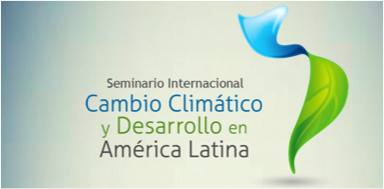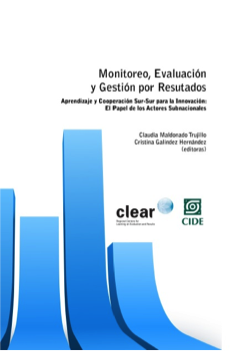We are Claudia Maldonado Trujillo and Oliver Manuel Peña, from CLEAR for Spanish-speaking Latin America. We’re located in Mexico City at CIDE (Center for Research and Teaching in Economics), a leading institution in social sciences. We’re sharing our work in advancing knowledge in evaluating climate change and how we’re addressing it through the upcoming International Seminar on Climate Change and Development in Latin America.
Lesson Learned: Context and main issues. If you’ve followed monitoring and evaluation (M&E) initiatives over the last 10 to 20 years, you’ll have seen that many advances have occurred in Latin America – such as the creation of exemplary M&E systems at national and subnational levels, innovative approaches to evaluate social programs, and so on. Yet, climate change – one of our most challenging public problems – seems to have gotten considerably less attention from evaluators and policymakers. Why is this?
We think that evaluation of climate change policy faces three main types of challenges: methodological, political, and network-related.
Methodologically, M&E approaches for climate change adaptation and mitigation policies have obvious complexities: measurement, attribution and accurate verification, among others. These challenges require more than program based evaluation models, with interdisciplinary innovations needed to assess how to effectively tackle climate change.
Politically, climate change isn’t often “center stage” in national policymaking. Despite international commitments and assumed national responsibilities, average policymakers often focus on problems that seem more immediate to them or to their constituencies.
Network-related challenges follow political challenges, in that most policymakers do not convene around this topic, unless they are working specifically on climate change and environment issues.
Knowing this, we’re using our platform as a regional center – along with the Inter-American Development Bank’s Office of Evaluation and Oversight (OVE) and the Swiss Agency for Development and Cooperation (SDC) – to convene and match up diverse, yet complementary, environmental specialists and policymakers with policymakers and stakeholders who don’t normally focus on climate change. Our goal is to raise awareness and advance the adoption of sound strategies – with reliable M&E instruments as a backbone at the International Seminar on Climate Change and Development in Latin America.
Lessons Learned: Institutional coordination with the IDB, SDC and other stakeholders on the agenda was key. It captured our complementary expertise, interests and concerns to shape an attractive and relevant agenda, drawing high-level participants with decision-making power.
Rad Resources: Learn more with these resources.
 Monitoring, Evaluation and Management for Results. Learning and South-South Cooperation for Innovation: The role of subnational actors (in Spanish).
Monitoring, Evaluation and Management for Results. Learning and South-South Cooperation for Innovation: The role of subnational actors (in Spanish).- IDB’s Climate Change and Sustainability Team website for environmental international agenda info in the Americas.
- Mexican National Institute of Ecology and Climate Change publications (in Spanish).
The American Evaluation Association is celebrating Centers for Learning on Evaluation and Results (CLEAR) week. The contributions all this week to aea365 come from members of CLEAR. Do you have questions, concerns, kudos, or content to extend this aea365 contribution? Please add them in the comments section for this post on the aea365 webpage so that we may enrich our community of practice. Would you like to submit an aea365 Tip? Please send a note of interest to aea365@eval.org. aea365 is sponsored by the American Evaluation Association and provides a Tip-a-Day by and for evaluators.
